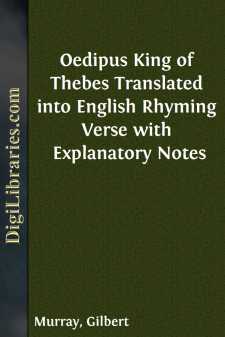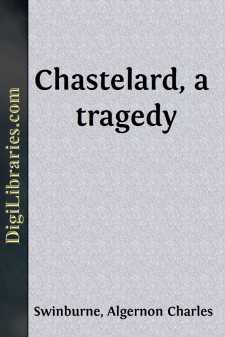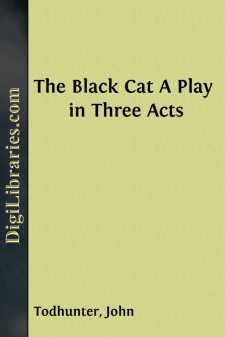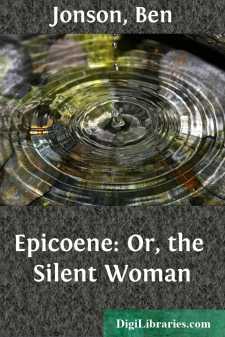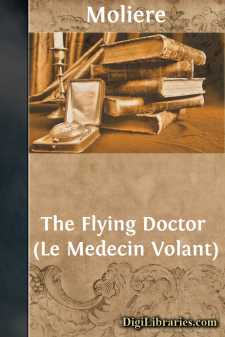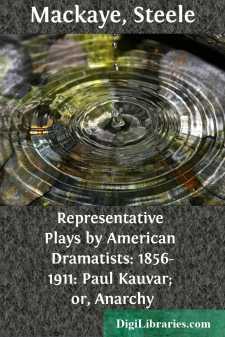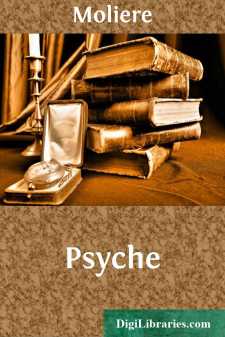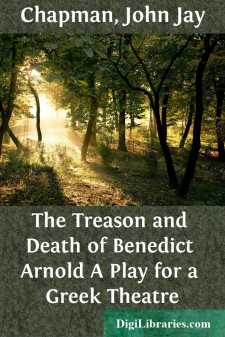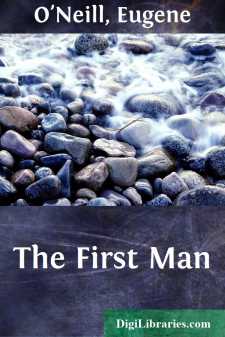Drama Books
Sort by:
by:
Bernard Shaw
ACT I On the heights overlooking the harbor of Mogador, a seaport on the west coast of Morocco, the missionary, in the coolness of the late afternoon, is following the precept of Voltaire by cultivating his garden. He is an elderly Scotchman, spiritually a little weatherbeaten, as having to navigate his creed in strange waters crowded with other craft but still a convinced son of the Free Church and...
more...
by:
Gilbert Murray
PREFACE If I have turned aside from Euripides for a moment and attempted a translation of the great stage masterpiece of Sophocles, my excuse must be the fascination of this play, which has thrown its spell on me as on many other translators. Yet I may plead also that as a rule every diligent student of these great works can add something to the discoveries of his predecessors, and I think I have been...
more...
SCENE I.—The Upper Chamber in Holyrood. The four MARIES. MARY BEATON (sings):— 1. Le navire Est a l'eau; Entends rire Ce gros flot Que fait luire Et bruire Le vieux sire Aquilo. 2. Dans l'espace Du grand air Le vent passe Comme un fer; Siffle et sonne, Tombe et tonne, Prend et donne A la mer. 3. Vois, la brise Tourne au...
more...
by:
John Todhunter
Act I. Scene: Denham's Studio. Large highlight window in sloping roof at back. Under it, in back wall, door to landing. l of the door the corner is curtained off for model's dressing-room. r of door a large Spanish leather folding screen, which runs on castors, shuts off from the door the other corner, in which is a "throne," pushed up against the wall. Above the "throne"...
more...
by:
Ben Jonson
INTRODUCTION THE greatest of English dramatists except Shakespeare, the first literary dictator and poet-laureate, a writer of verse, prose, satire, and criticism who most potently of all the men of his time affected the subsequent course of English letters: such was Ben Jonson, and as such his strong personality assumes an interest to us almost unparalleled, at least in his age. Ben Jonson came of the...
more...
by:
Moliere
SCENE I.——VALÈRE, SABINE. Val. Well, Sabine, what do you advise me to do? Sab. I have really much to tell you. My uncle is bent upon marrying my cousin to Villebrequin, and things have gone so far, that I believe the wedding would have taken place to-day if you were not loved by her. However, as my cousin told me the secret of all the love she feels for you, and as we were almost driven to...
more...
by:
Steele Mackaye
STEELE MACKAYE (1844-1894) When one realizes the sociological purpose behind Steele Mackaye's "Paul Kauvar; or, Anarchy," it is interesting to note how inefficient the old form of drama was to carry anything more than the formal romantic fervour. Compared with John Galsworthy's treatment in "Strife" and "Justice," it makes one glad that realism came and washed away all...
more...
by:
Moliere
PROLOGUE. The front of the stage represents a rustic spot, while at the back the sea can be seen in the distance. SCENE I. Flora. appears in the centre of the stage, attended by Vertumnus, god of trees and fruit, and by Palemon, god of the streams. Each of these gods conducts a troup of divinities; one leads in his train Dryads and Sylvans, and the other River Gods and Naiads. Flora sings the...
more...
by:
John Jay Chapman
TREASON AND DEATH OF BENEDICT ARNOLD ACT I The margin of the Hudson at West Point. Fort Putnam and the Highlands in the distance. A flag is fluttering on the fort. The orchestra represents the level of the river shore, upon which level the Chorus will enter. The characters of the drama appear on a bank or platform, slightly raised above the orchestra and Chorus. At the opening of the play Father Hudson...
more...
by:
Eugene O'Neill
ACT I SCENE—Living-room of CURTIS JAYSON'S house in Bridgetown, Conn. A large, comfortable room. On the left, an arm-chair, a big open fireplace, a writing desk with chair in far left corner. On this side there is also a door leading into CURTIS' study. In the rear, center, a double doorway opening on the hall and the entryway. Bookcases are built into the wall on both sides of this...
more...



